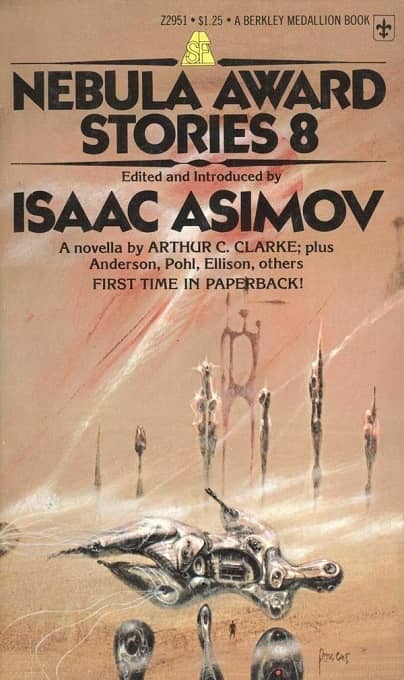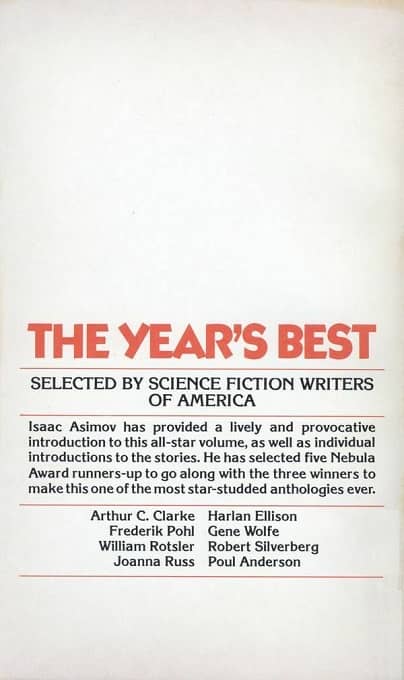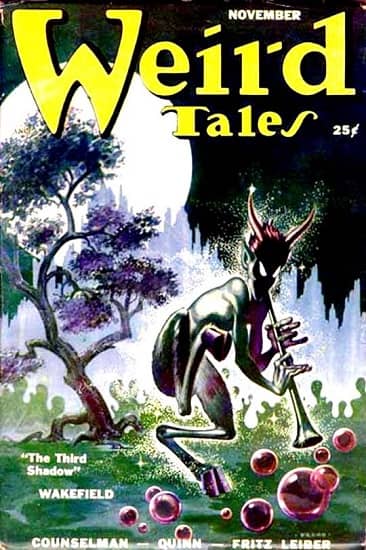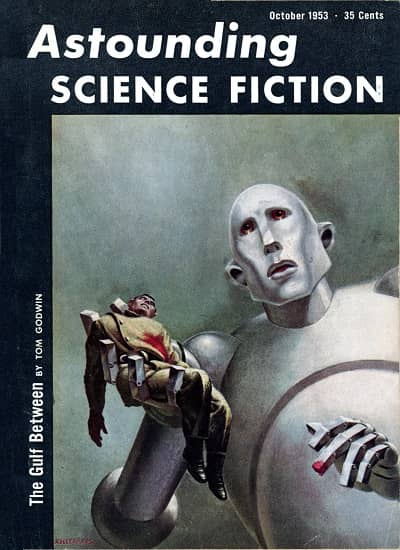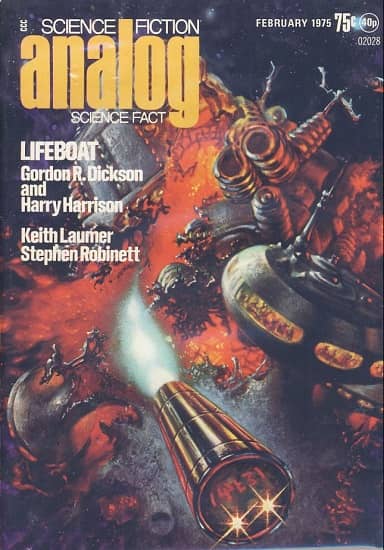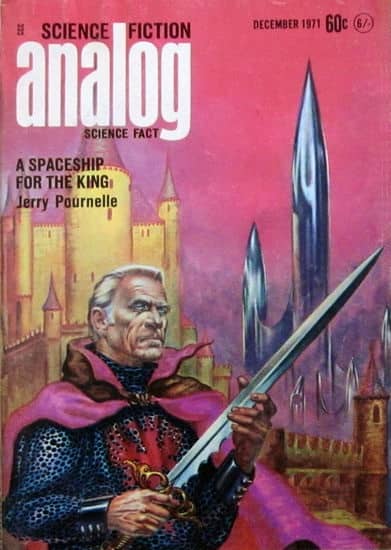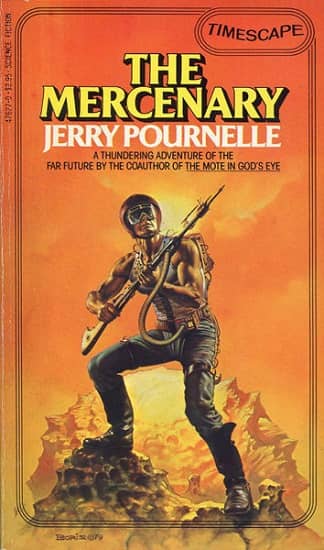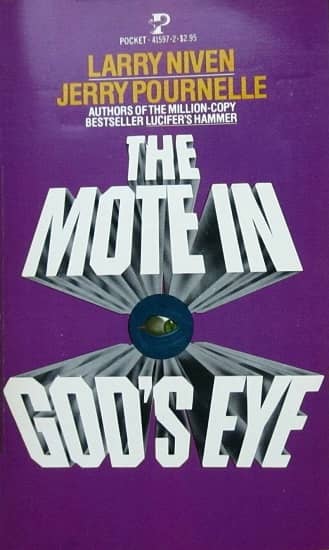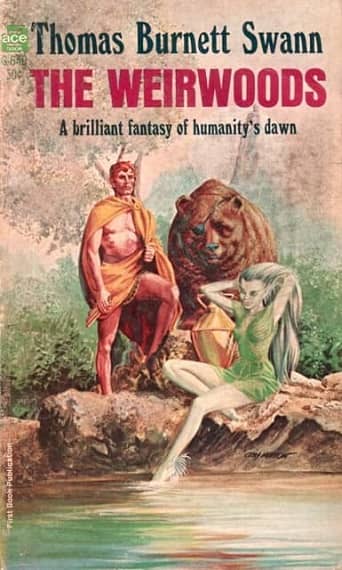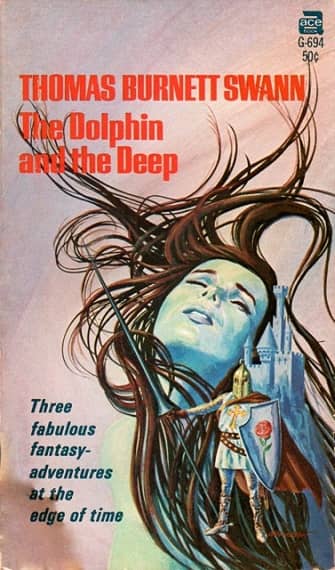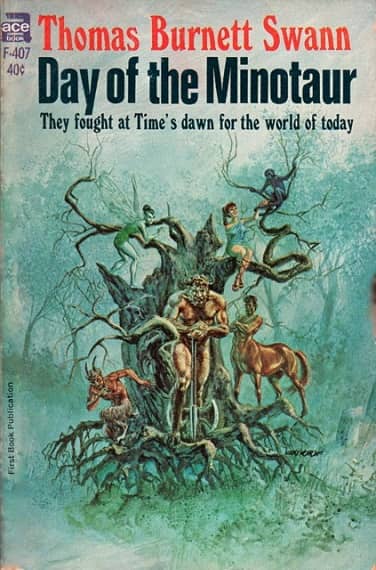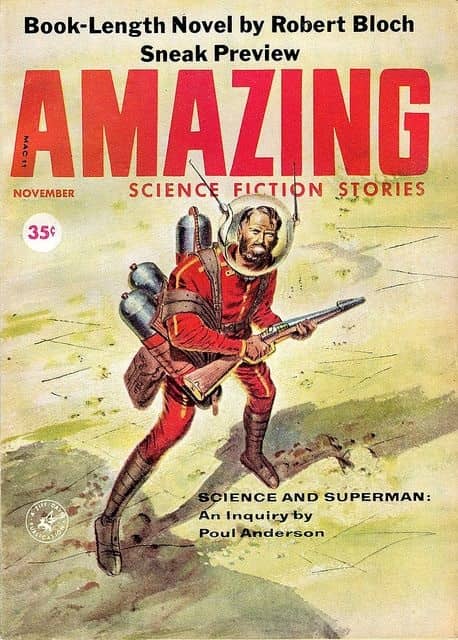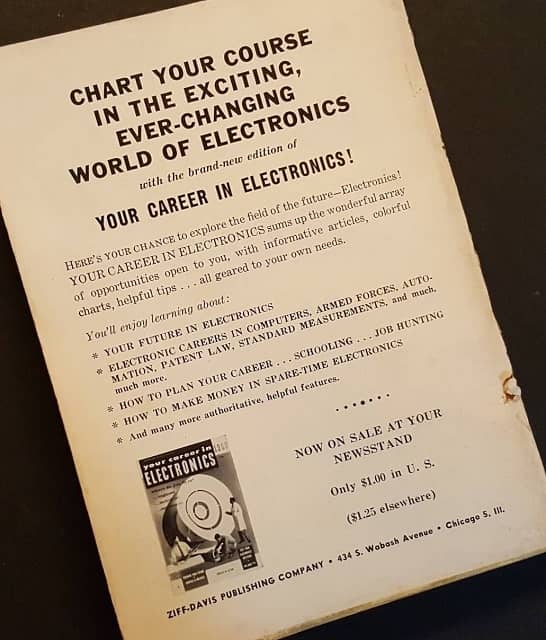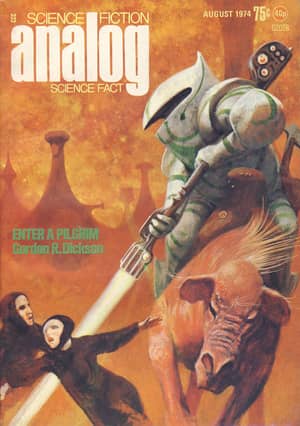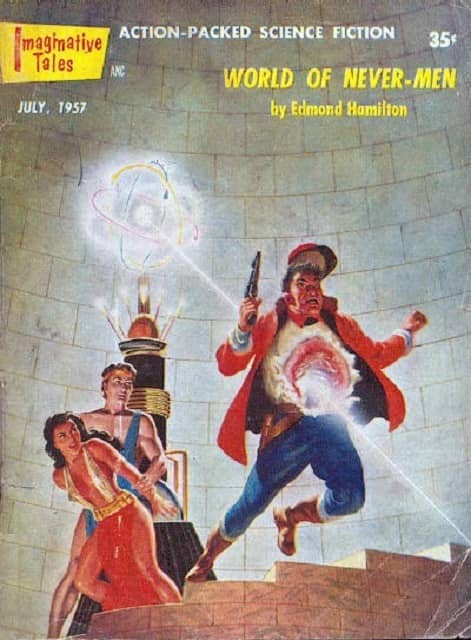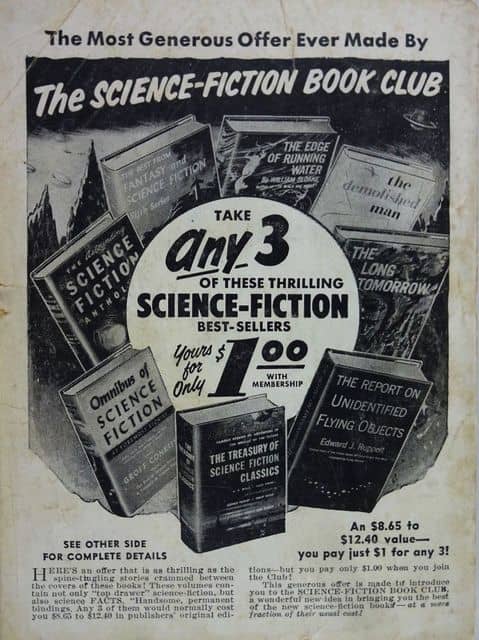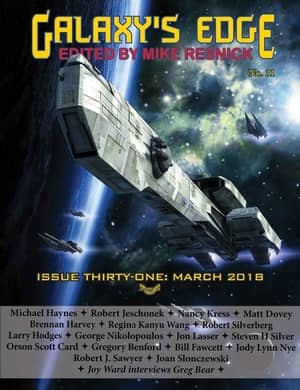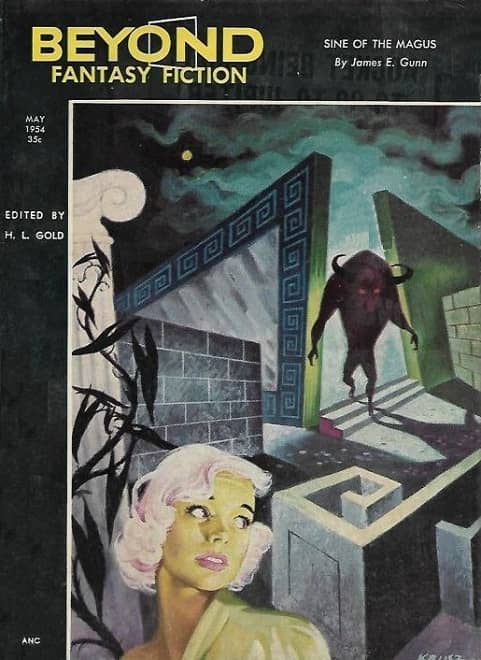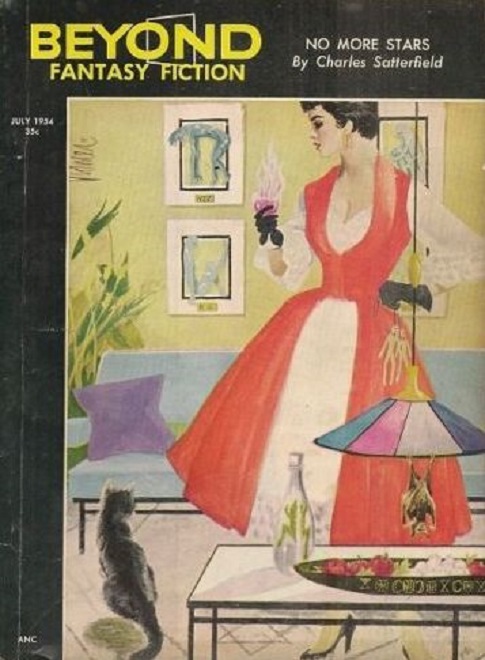Golden Age of Science Fiction: The 1973 Nebula and Hugo Award for Best Novelette: “Goat Song,” by Poul Anderson
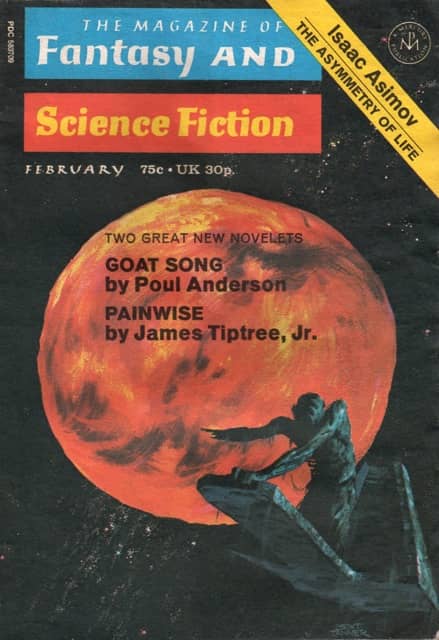 |
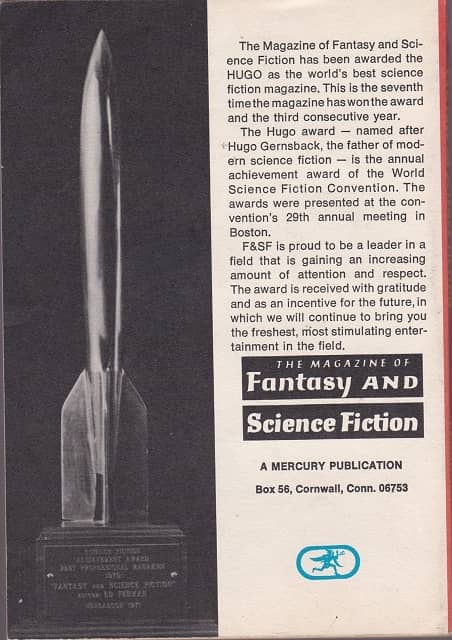 |
Cover by Bert Tanner
Steven Silver has been doing a series covering the award winners from his age 12 year, and Steven has credited me for (indirectly) suggesting this, when I quoted Peter Graham’s statement “The Golden Age of Science Fiction” is 12, in the “comment section” to the entry on 1973 in Jo Walton’s wonderful book An Informal History of the Hugos. You see, I was 12 in 1972, so the awards for 1973 were the awards for my personal Golden Age. And Steven suggested that much as he is covering awards for 1980, I might cover awards for 1973 here in Black Gate.
Poul Anderson (1926-2001) was one of the leading SF and Fantasy writers of the last half of the 20th Century. He won the Hugo Award no fewer than seven times for his short fiction, twice taking the Nebula for the same story. He was named an SFWA Grand Master in 1998, he also won the Gandalf Award as Grand Master of Fantasy, and he received numerous other awards including the Mythopeic Award and the Prometheus Award. His best known novel might be Tau Zero (which finished second for the Hugo in 1971). His extended Future History sequence collectively called the Technic Universe probably represents his best-known and best-received set of stories, and his most famous characters, Nicholas Van Rijn and Dominic Flandry, appear in that series.
“Goat Song” is a pure standalone story, not part of any series. It appeared in F&SF for February 1972. As noted in the title of this essay, it won both the Hugo and Nebula for Best Novelette. I would have read it first in Nebula Award Stories 8. At the time I remember being tremendously impressed, but on this most recent rereading its force had diminished. (I reread it in my paperback edition of Anderson’s very fine 1975 collection Homeward and Beyond, which includes one very significant and lesser known story, the historical “The Peat Bog.”)
